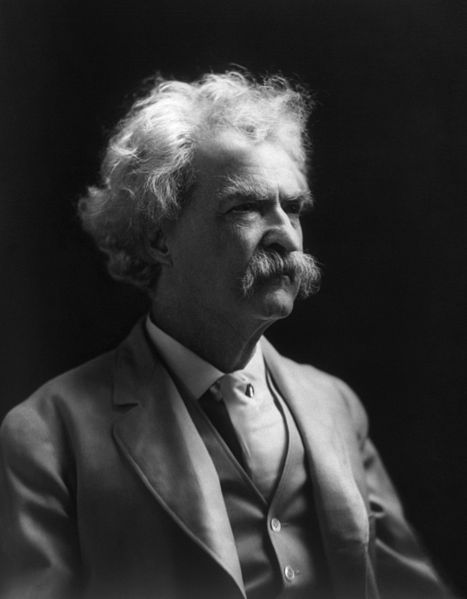 Much speculation has surrounded Mark Twain’s autobiography because of the stipulation in his will that it not be published until 100 years after his death. Many have wondered exactly what he said that was so controversial. Readers won’t have to wait much longer. The New York Times reports that the first of three volumes is set to be published by the University of California Press this November. You can preorder it on Amazon right now. No word yet on when volumes 2 and 3, which are said to contain most of the previously unpublished material, will be published.
Much speculation has surrounded Mark Twain’s autobiography because of the stipulation in his will that it not be published until 100 years after his death. Many have wondered exactly what he said that was so controversial. Readers won’t have to wait much longer. The New York Times reports that the first of three volumes is set to be published by the University of California Press this November. You can preorder it on Amazon right now. No word yet on when volumes 2 and 3, which are said to contain most of the previously unpublished material, will be published.
Are you going to try to read it?
Other book news this week:
Thursday, July 15 marks the 172nd anniversary of Ralph Waldo Emerson‘s famous Divinity School Address at Harvard Divinity School. Emerson declared Jesus to be a great man, but not divine, and he discounted biblical miracles in this famous address. The controversial speech resulted in Emerson’s not speaking at Harvard for 30 years. You can read the speech here.
Friday July 16 marks the 95th anniversary of the date when Henry James became a British citizen. I can only think of one other American writer—T. S. Eliot—who became a British citizen. Because James died less than a year after becoming a British citizen, most people don’t think of him as an English writer, whereas some people do think of Eliot as English. Can you think of other American writers who became British citizens?
July 16 also marks the 59th anniversary of the publication of J. D. Salinger’s The Catcher in the Rye. This book continues to speak to students even today. You can read my reflections about teaching it here and here.
Mickey Spillane died four years ago on July 17.
On July 18, 1925, Adolf Hitler published Mein Kampf. William Makepeace Thackeray was born on July 18, 1811. Jane Austen died on July 18, 1817. Horatio Alger also died on that date in 1899.
On July 19, 1692, five women—Sarah Good, Elizabeth Howe, Susannah Martin, Sarah Wildes, and Rebecca Nurse—were hanged for witchcraft in Salem, MA. (my visit to Salem begins on that date next week!) The Salem witch trials served as inspiration for Arthur Miller’s play The Crucible, as well as one of my favorite YA writers Ann Rinaldi’s book A Break with Charity. Elizabeth Howe is an ancestor of modern writer Katherine Howe, who also used Salem’s witchcraft history as inspiration for her novel The Physick Book of Deliverance Dane (read my review).
On July 19, 1963, Australian author Garth Nix was born. I enjoyed his book Sabriel. My daughter loves his writing.
Transcendentalist writer Margaret Fuller died on July 19, 1850. Irish-American writer Frank McCourt died a year ago on July 19, 2009.
